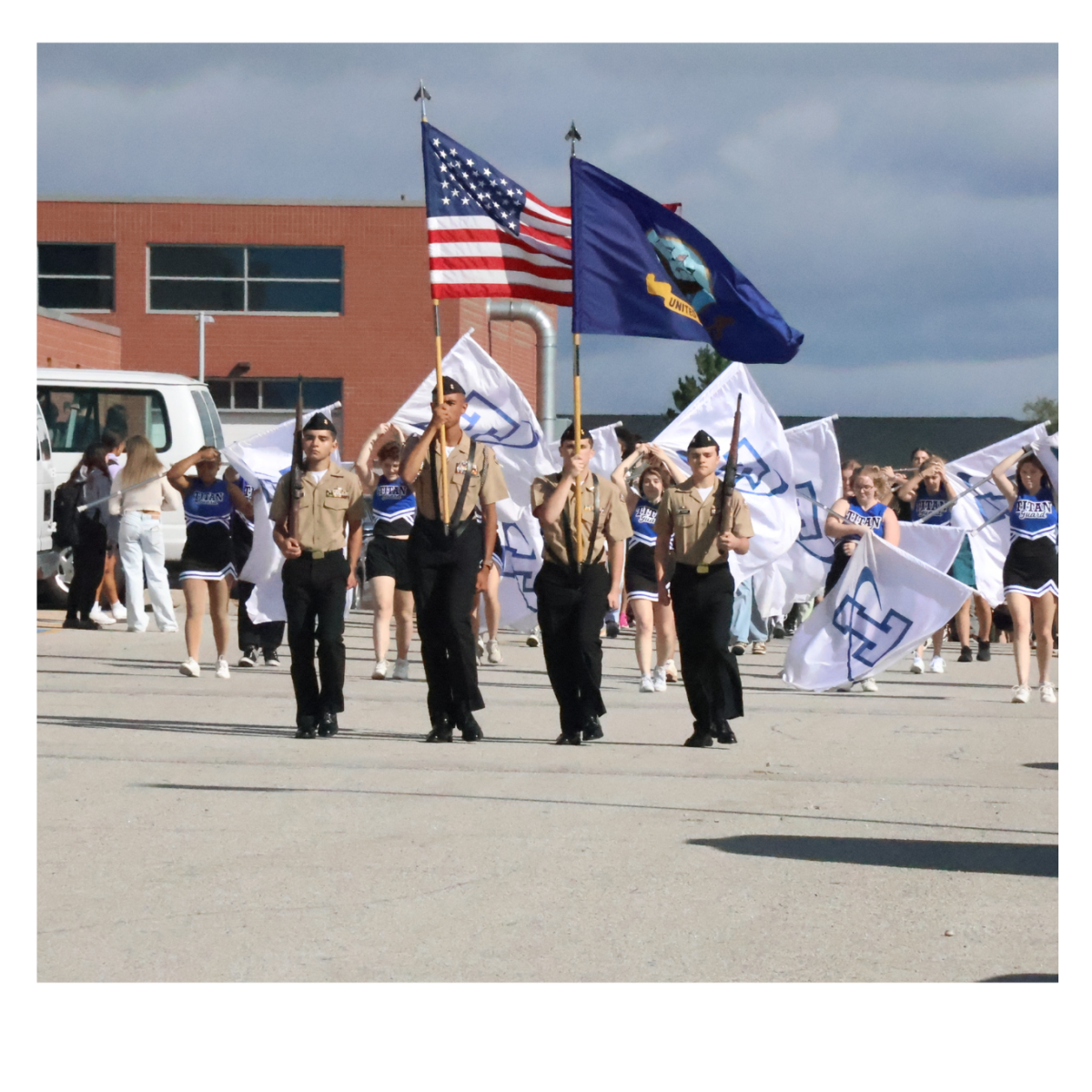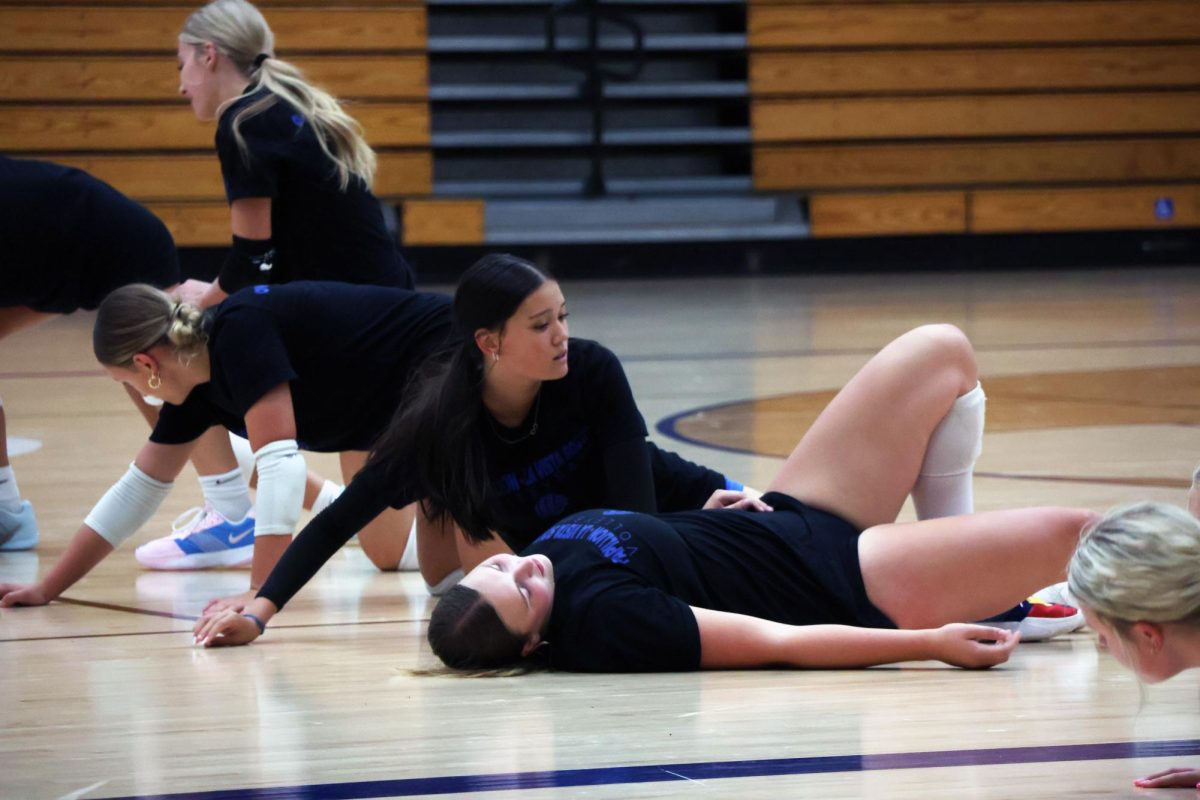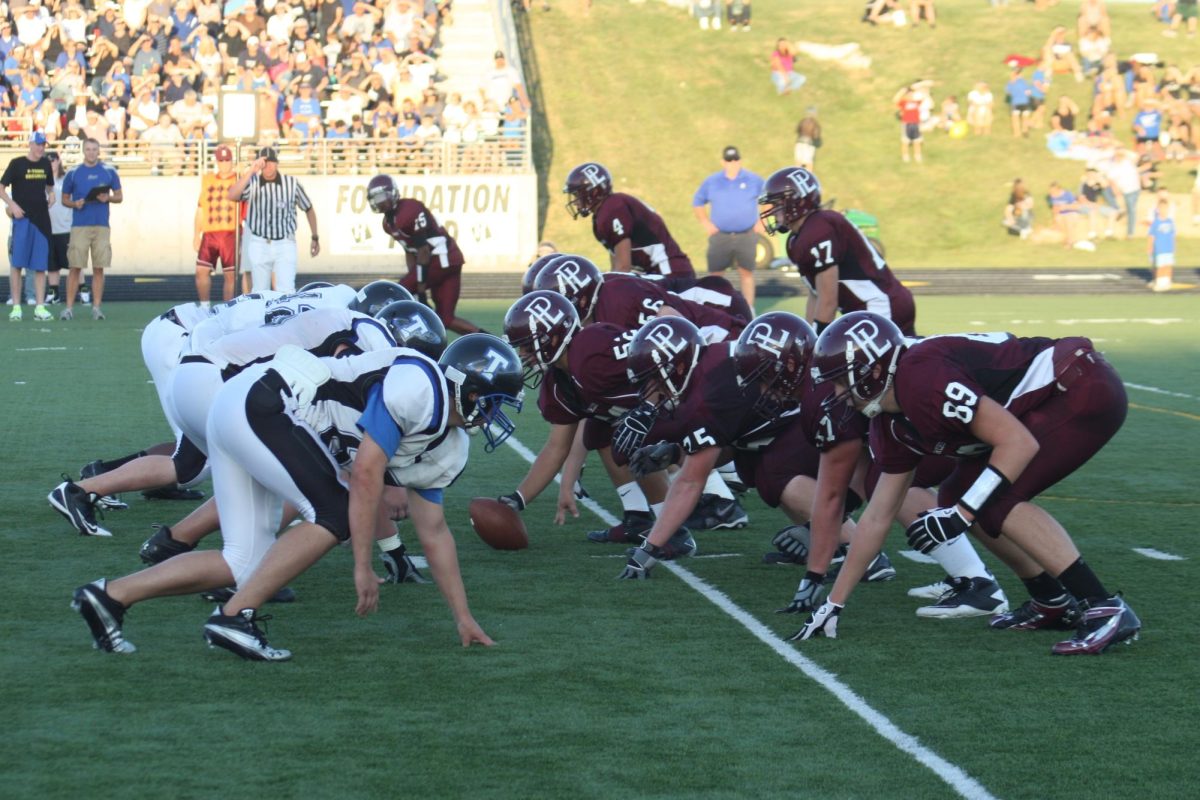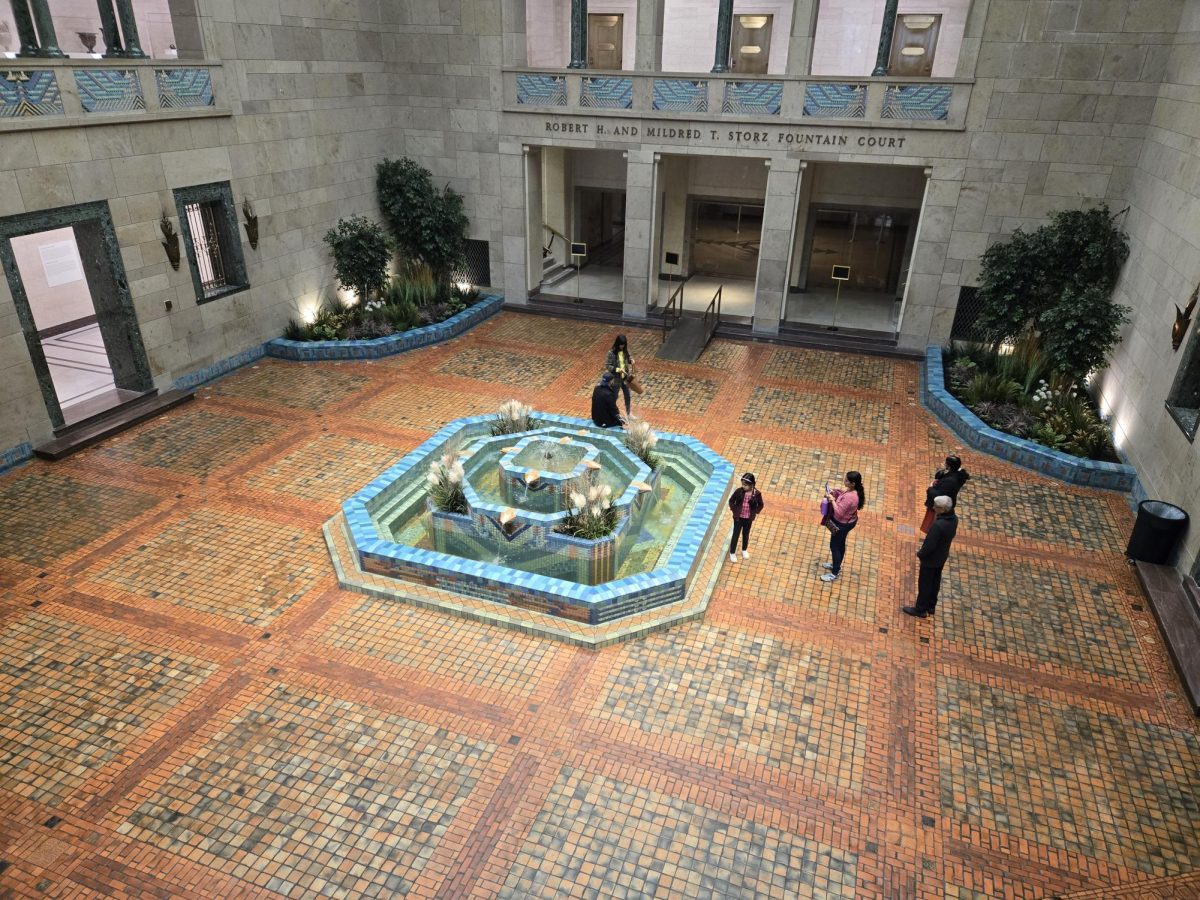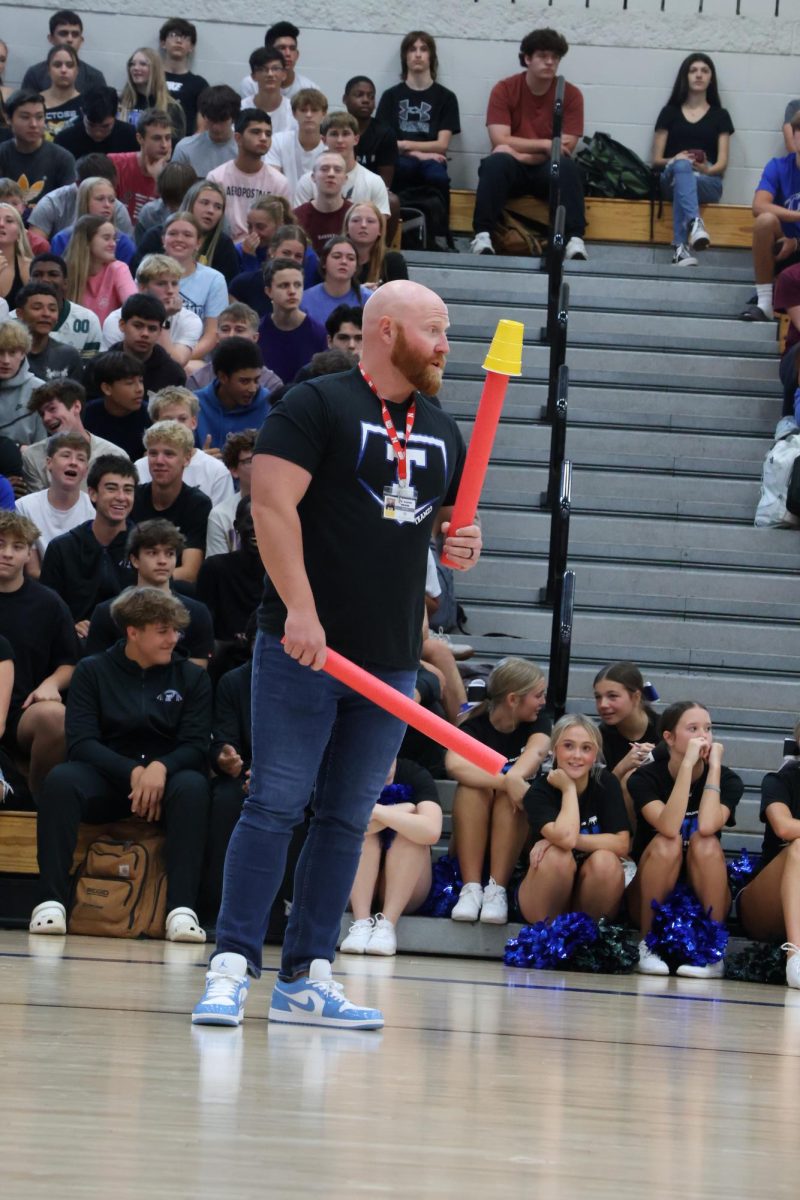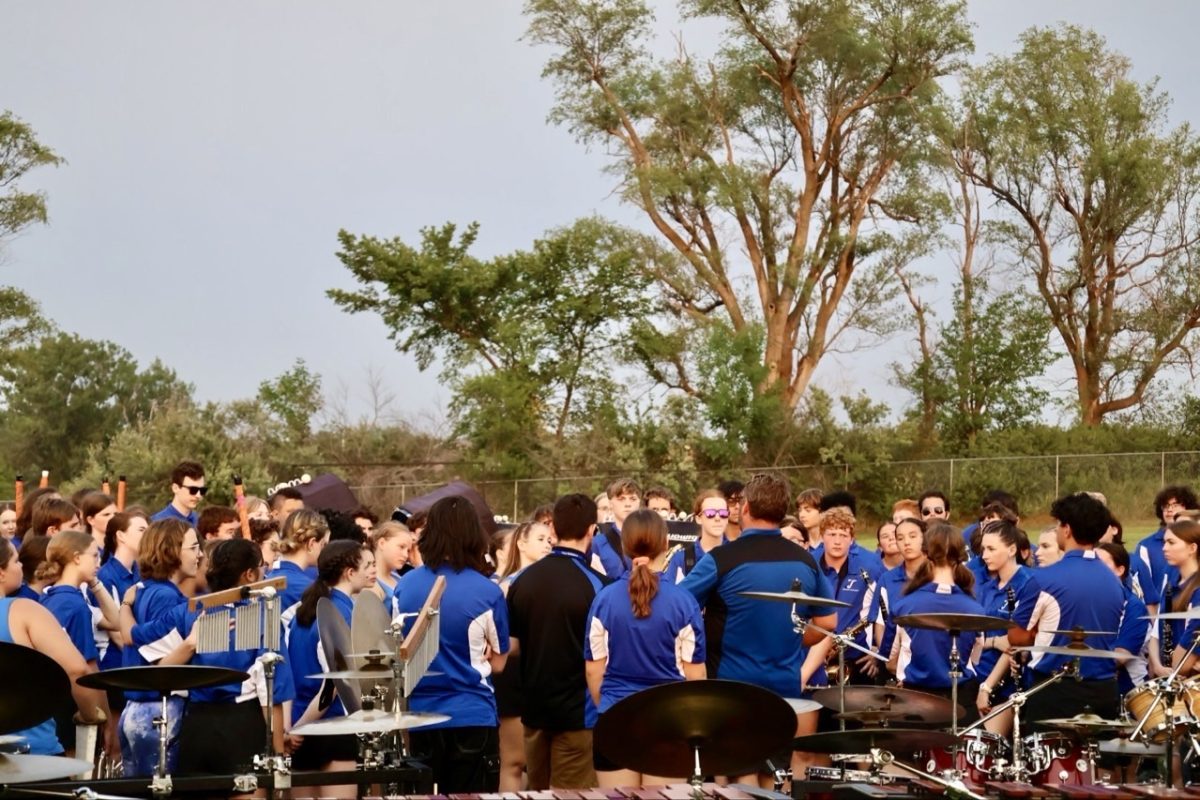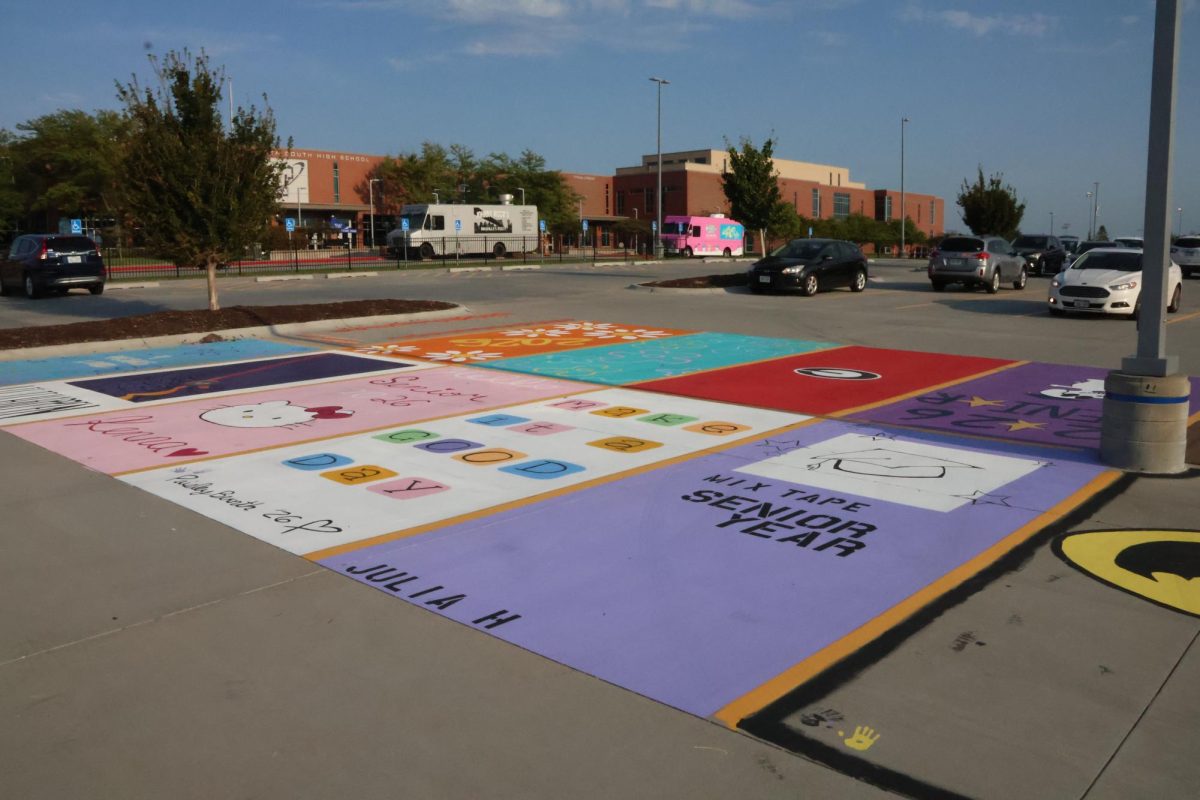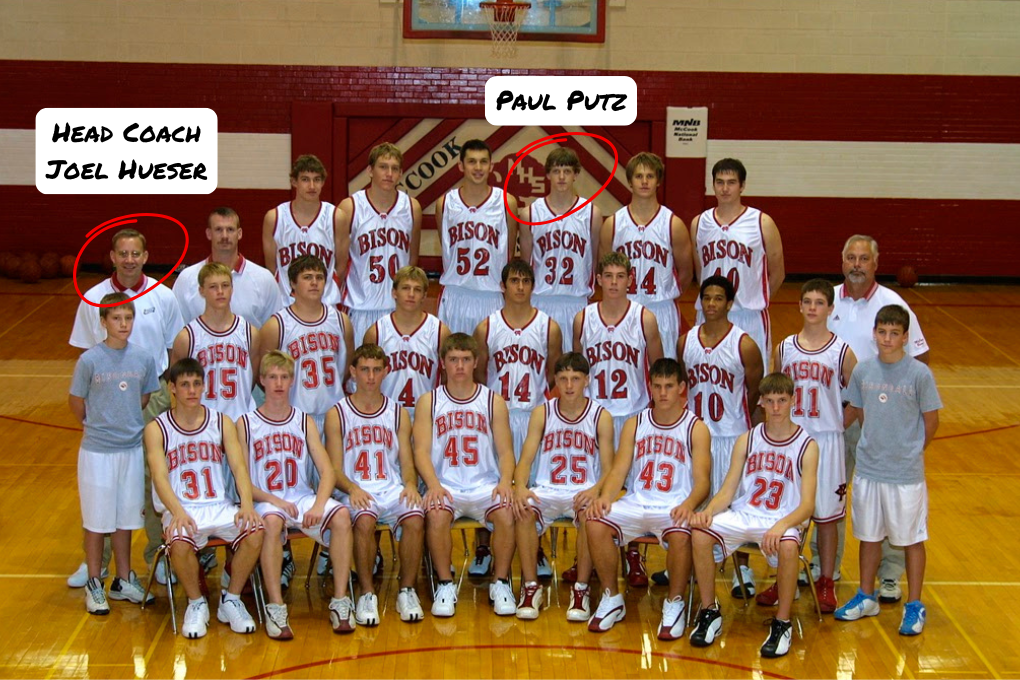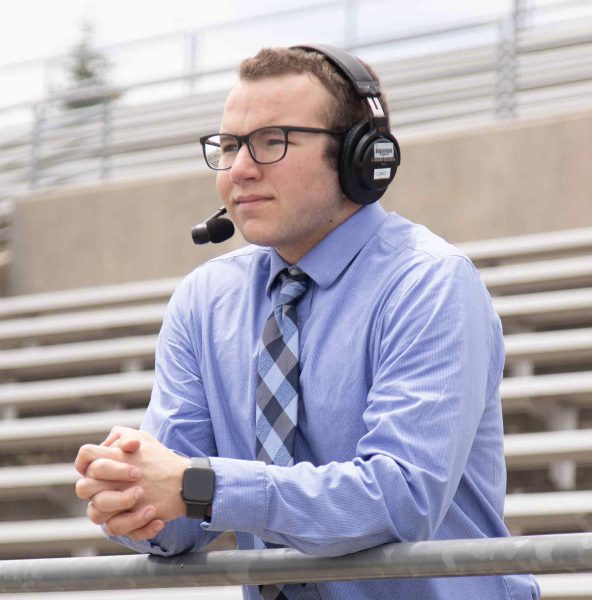When Coach Joel Hueser’s varsity boys basketball team won its first state championship in March, there was rejoicing several states away. Dr. Paul Emory Putz, a Baylor University program director and former student-athlete who trained under Hueser over 20 years ago, expressed his excitement in a Facebook post that was widely shared throughout the Papio South community.
Putz, author of the recently published book “The Spirit of the Game,” said his journey into understanding the complex relationship between big-time sports and American Christianity was shaped by his unique upbringing and experiences in McCook, Nebraska, where he met and trained under Hueser.
A pastor’s kid with a passion for basketball, Putz’s life intertwined both faith and athletics from an early age. What began as a love for sports and a strong Christian identity grew into a deeper exploration of how these two realms intersected, sparking a lifelong academic pursuit. His fascination ultimately led to his research on the history of sports and its connections to Christianity in American culture, which formed the premise of his book.
Putz credits much of his early inspiration to Hueser, who helped him navigate the blending of these two worlds. In McCook, Putz was introduced to Hueser through his basketball camps.
These “Bison Ball Camps” were more than just about learning the fundamentals of basketball—they were about instilling character and faith.
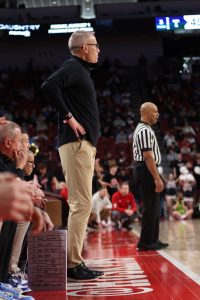
In a recent interview for Titan Legacy, Putz recalled Hueser’s leadership on the court, describing him as not only an outstanding basketball coach but also as a mentor who combined athleticism with spirituality in a way that resonated deeply.
“Coach Hueser was someone who could model what it looked like to be both a Christian and an athlete,” Putz shared. “His ability to navigate that balance helped shape my own understanding of how faith could be integrated into every aspect of life, including sports.”
It wasn’t just about sports for Putz. Hueser’s influence extended into the spiritual realm through the Fellowship of Christian Athletes, which Hueser helped nurture in McCook. For Putz, the FCA meetings at Hueser’s house were where the faith element truly took shape.
Hueser and his wife, Lisa, opened their home to athletes and students, creating a welcoming environment that encouraged both personal and spiritual growth. It wasn’t forced or overt—Hueser simply embodied his faith through his coaching and personal interactions, leaving a lasting imprint on those he mentored.
“I think one of the things Hueser did really well was to make space for athletes to grow both spiritually and athletically, without pushing one over the other,” Putz explained. “His approach was not about forcing religion but about showing how faith could shape our daily lives, whether on the court or off.”
Hueser’s influence wasn’t confined to just building athletes’ spiritual lives; he was also deeply committed to developing them as individuals. Putz recalled how Hueser’s coaching philosophy extended far beyond winning games—he instilled values of humility, integrity and commitment. These lessons, delivered with both seriousness and warmth, had a profound effect on Putz’s own development, both as an athlete and as a person.
“When I was in high school, we were taught to focus not only on basketball fundamentals but also on life skills,” Putz recalled. “We had a handbook, the Bison Ball Handbook, filled with basketball teaching points and life philosophy. It was a mix of basketball principles and quotes from John Wooden and Ralph Waldo Emerson, encouraging us to bring enthusiasm, integrity, and character into everything we did.”
Even in the heat of competition, Hueser’s approach was grounded in patience and long-term development rather than immediate results. Putz reflected on how, as a high school player, he didn’t fully appreciate the depth of Hueser’s coaching until years later, after seeing Hueser’s methodical and patient approach to building successful programs in multiple schools.
“His focus was always on the long game. At McCook, we were a small school competing against much larger schools, but we found ways to succeed because Hueser’s focus was on developing a
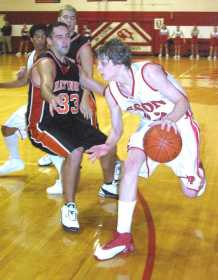
culture, not just on winning immediately,” Putz noted. “Later, when he went to Papillion-La Vista South, I watched him build that same culture of development, and I began to realize just how special that approach was.”
So when Hueser’s Papio South team won its state championship in April, it felt especially momentous for Putz—a victory that meant far more than just a trophy. “It wasn’t about the championship itself. It was about the way Hueser embodied his faith in his coaching,” Putz said. “It was a reminder that success in sports doesn’t have to come at the cost of integrity or personal character.”
Hueser’s legacy is deeply rooted in the values he instilled in his athletes—values that transcend the basketball court. His influence on Putz has reached beyond the game itself, shaping the way Putz has approached his career as a historian and educator.
“There’s a phrase Hueser used often: ‘Nothing great is ever achieved without enthusiasm,’” Putz reflected. “That’s something I bring into my own work as a historian and a teacher. It’s a reminder to approach everything with passion and integrity. He taught us to focus on becoming the best versions of ourselves, not by comparing ourselves to others but by developing our own unique potential.”
Putz’s growth as a coach and mentor mirrored Hueser’s own philosophy. Through an ongoing relationship with Putz, Hueser said he witnessed firsthand how his coaching principles took root in his former athletes. In return, Putz became an important sounding board in Hueser’s own coaching journey, particularly as both navigated the intersection of sports and faith.
“I reach out to Paul often for advice and perspective,” Hueser admitted. “He’s not only a great historian and a friend but someone who understands the deeper meaning behind what we do. It’s not just about basketball; it’s about helping young people grow into responsible, loving individuals who lead with integrity.”
For Hueser, the Fellowship of Christian Athletes has always been central to his coaching philosophy. To him, coaching isn’t about the wins or the losses—it’s about helping athletes become well-rounded individuals who live out their faith in all areas of life. “It’s about living and loving like Jesus. It’s about reflecting His love in everything we do,” Hueser explained. “That’s the foundation for how I approach coaching, fatherhood, and even my personal life.”
Hueser also emphasized the importance of treating each athlete as a person first, acknowledging that not all athletes share the same faith or beliefs. “It’s about showing dignity and respect, regardless of where they’re coming from,” Hueser reflected. “You want to treat the person as greater than the player and guide them in a way that they can apply in life, not just in sports.”
Looking back, both Putz and Hueser acknowledged that their shared experiences in sports shaped not only their careers but also their perspectives on life. For Putz, Hueser’s example has continued to inform how he lives and works, striving to model the same integrity and commitment that he learned from his coach.
For Hueser, his legacy lives on in the countless athletes whose lives were touched by his philosophy, showing them that success in life is about more than just victories on the court—it’s about how one lives, loves, and serves others.
In many ways, Dr. Paul Emory Putz’s academic exploration of sports and faith is a direct extension of the lessons learned from Coach Joel Hueser. Together, their stories highlight the enduring power of sports as a platform for developing character, faith, and community.
—
Link to state championship game story: https://plsouthsidescroll.com/5952/sports/titans-make-hist…all-championship/


![Pictured above is a structure that displays the names of Nebraska Vietnam veterans in order to “honor [their] courage, sacrifice and devotion to duty and country.”](https://plsouthsidescroll.com/wp-content/uploads/2025/10/Trey_092625_0014-e1760030641144-1200x490.jpg)
